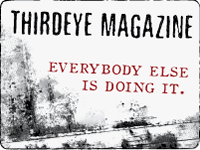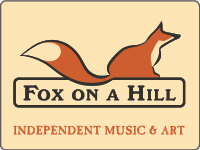
As we race into the 21st Century, music — like much else — seems sadly lacking in originality. Everything has roots and nearly every new avenue somewhat retraces the steps of a bygone era. Just in the last fifteen years of music, we’ve witnessed several sonic rebirths that have faded as quickly as they had become sensations.
We skanked into the early ’90s (although we now acknowledge the silliness), to the third wave of the ska revolution. Through the breakthrough popularity of artists like the Brian Setzer Orchestra and Cherry Poppin’ Daddies, the swing jazz, big band fare of the ‘30s and ‘40s had a brief revival during late ‘90s. In 2006, bands like My Bloody Valentine, Avenged Sevenfold, and other rock/metal acts have paid heavy homage to the power ballad, hard partying hair bands of the 80s.
So, what’s the next big trend in music? Nothing is for certain, but it’s worth examining the singer/songwriters’ return to popularity.
When friction between the U.S. and North Vietnam escalated into full-blown ground combat, the instatement of a draft and first major troop deployments did as much for our musical landscape as the political.
Music and politics frequently go hand-in-hand, as music has long been a subtle, yet powerful vehicle of expression.
Music and politics frequently go hand-in-hand, as music has long been a subtle, yet powerful vehicle of expression. Never was it more powerful than in the 1960s, when freedom of expression was the mantra for a public majority tired of war. With an unconventional enemy and mounting casualties, the public’s frustration with the government spilled over into every social facet. Experimentation both with drugs and sex ballooned into an itch that had to be scratched. The eradication of social inhibitions seemed a cure.
Singer-songwriting that combined protest with rock sensibility became dubbed “folk-rock.” Influenced heavily by the Beatles and Bob Dylan, artists like Paul Simon, Phil Ochs, Joan Baez, and others created an outlet for protesters to mourn and constructively criticize a government that seemed lost in a blinding desire to prove its power and sway.
Fast-forward forty years. America is again at war against an unconventional enemy. The war has lasted longer than expected and American casualties are mounting. Many consider the war imperialistic and illegitimate. Public frustration is high and the President’s popularity low.
And during the last few years, singer/songwriters like Joseph Arthur and Leonard Cohen have re-emerged as prominent voices during these times of turmoil.
David Rovics is one of the loudest voices to emerge amongst the clamor of public dissent. He is not only an outspoken opponent of George W. Bush, but also of John Kerry and the Democratic Party as a whole. His stance on humanitarian and political issues is even reflected in his distribution methods. All of Rovics’ albums — the majority of which are self-released — are available in a full, mp3 format.
“I believe music can be more than an escape. It can be that — yes, fine — but it can also be a hammer, to paraphrase Bertoldt Brecht,” Rovics said. “It can be a tool for selling products on the one hand, or part of the stockpile of ammunition necessary to build and maintain a social movement.”
Another politically motivated singer songwriter of note is Iraqi-American Stephen Smith. After Neil Young released his latest political album, Living With War Today, Young claimed to have created it out of necessity, due to a lack of artists willing to carry on the torch. Hitting on a particular issue of sensitivity to Smith, he responded with an open letter to Young.
“While established artists like yourself may have felt your hands tied, the truth is far worse for upcoming artists,” Smith wrote. “Even booking agents and managers won’t touch us for fear that we will offend their audiences in a country where consumerism and patriotism stand united, as your song ‘Restless Consumer’ makes clear.”
Smith chipped away at the hallowed mantle of artists like Green Day and Steve Earle, who profited from dissent, receiving Grammy Awards for their largely topical albums. Kanye West, Bright Eyes and Anti-Flag were in this list as well.
“These are all artists who were established before they questioned the war in Iraq,” he wrote. “For now, questioning authority in the mainstream industry remains reserved for celebrities.”
Although Smith’s contentions with consumer and industry practices are arguable, acts like Rovics and Smith prove that the next generation of singer/songwriters have in fact taken the torch and are blazing ahead in the name of social change.





No Comments so far ↓
There are no comments yet...Kick things off by filling out the form below.